Tax legislation in the UK is ever-changing; always vulnerable to alterations and modifications at whichever fiscal event comes next. As a result, we recognise that tax planning can be a challenging process.
However, failure to plan effectively can leave your wealth unprotected and the success of your venture hanging in the balance.
Planning ahead, to make sure you are taking advantage of the tax reliefs and allowances that are available to you and that, where possible, you are able to implement tax-efficient strategies, makes good financial sense and should be a priority.
The importance of tax planning for businesses
The total sum of tax that a business owes will always be determined by the amount of profit that it makes. For businesses, effective tax planning has a vital role to play in the efficiency, profitability and, ultimately, the long-term success of the operation.
Key considerations should include, but not be limited to:
- The structure of the business – The structure of a business can largely dictate your resulting tax liabilities. A sole trader or traditional partnership, for instance, will be liable to income tax on profits, so should plan accordingly, whilst a limited company will also need to plan for corporation tax liabilities.
- allowances available to the business – Capital allowances are a way of obtaining tax relief on some types of capital expenditure. They are treated as another business expense and so reduce your taxable profit. However, only certain expenditure will qualify including, motor vehicles, computers, tools and other specialist machinery, for example, whilst others will not. A comprehensive list can be found
here. - Withdrawals from the business – when extracting profits from your business, you should consider the most tax-efficient way in which to do this; whether this be taking a salary, extracting dividends, increasing your pensions contributions or investing the profits elsewhere.
The importance of tax planning for individuals
It is the case that personal tax planning often goes hand-in-hand with business tax planning.
For example, when you extract profits from the business you will want to do so in a way that not only minimises your business tax liabilities, but also your personal tax liabilities.
Effective personal tax planning is equally important if you are to avoid missing out on valuable allowances and reliefs and, consequently, paying more tax than is necessary.
Consider the following:
- Are you making the most of your/your spouse’s personal allowance and basic rate band?
- Are you making the most of any annual savings allowances (ISA, for example)?
- Are you keeping on top of your pension contributions?
- Will your wealth be protected against Inheritance Tax (IHT) in the future?
- What plans do you have for the next 12 months and how will these impact upon your tax liabilities?
Income Tax, Inheritance Tax and Capital Gains Tax
Income Tax, Inheritance Tax (IHT) and Capital Gains Tax (CGT) generate a considerable amount of revenue for HMRC. If you fail to undertake effective tax-planning, you could easily end find yourself liable for a larger than anticipated bill in respect of one, or all of these taxes.
Remember…
- You have a tax-free Personal Allowance of £11,850 to April 5. On April 6 this increases to £12,500 for 2019/20.
- Upon your death, you receive a personal allowance – the ‘nil rate band’ – to offset against the value of your estate from an IHT perspective. This will be set at £325,000 until at least April 5, 2021, and any value over the nil rate band is charged at 40 per cent. Where property is passed to direct descendants, you can benefit from an additional residential inheritance tax nil rate band allowance, which currently offers an extra £125,000 allowance, rising to £175,000 by 2020/1.
- There are a number of other ways in which you can mitigate your IHT liabilities; by gifting money, establishing a trust and utilising your annual allowance, for example.
- You can benefit from a Capital Gains Tax Annual Exemption which is set at £11,700 to April 5. From April 6 this will increase to £12,000 for 2019/20.
Pensions and tax-efficient savings
Effectively utilising your pensions contributions and other tax-efficient savings can help you to reduce your tax bill.
Take full advantage of increasing pension contributions by utilising the annual allowance, which is £40,000 (tapered if you earn over £150,000) or the value of your whole earnings – whichever is lower. Unused annual allowances may also be carried forward from the previous three tax years.
For incomes over £150,000 the allowance is reduced on a sliding scale until the lower limit of £10,000.
If you run an owner-managed company it is worth bearing in mind that the company can make contributions on your behalf; typically by way of salary sacrifice, thereby reducing income tax, National Insurance Contributions and corporation tax liabilities.
You should also ensure that, where possible, you utilise your annual ISA allowance of £20,000. Your allowance will renew on 6 April.
How George Hay help?
At all times, not just now, planning is vital if you are to ensure that your affairs are handled in a tax-efficient manner.
It’s important to bear in mind that your circumstances are likely to be very different to the next person, or the business down the road, so it is essential that you seek professional advice at the earliest opportunity.
Discussing your upcoming plans, for the next 12 months and beyond, with a tax adviser or accountant could help you to significantly reduce your liabilities.
If you’d like to talk to one of our team about effective tax planning, no matter what stage your business is at, please contact us today at one of our offices in Biggleswade, Huntingdon or Letchworth, or fill in one of our online enquiry forms.









